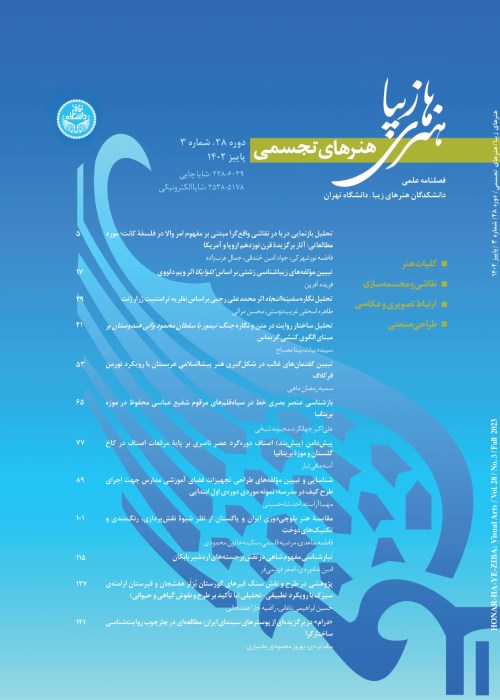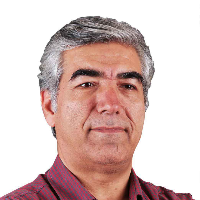A Study on Permission Letter in the Realm of Calligraphy
Author(s):
Abstract:
In this paper, the tradition of permission in the traditional calligraphy education is addressed. Way of asking "permission" by the pupil after completing training in calligraphy is considered as a kind of test for the competence in that the pupil provides all his skill and dexterity in his scrapbook so that the master permits his graduation from the noble art of Calligraphy. In this article, first, the philosophy of permission as one of the main chains connecting traditional education of calligraphy to profession is discussed, and then the procedure of asking permission and pupil’s entrance into the profession is addressed. This tradition is considered as a requirement for preserving the credibility of engaging in the professions and recruiting artist and skilful individuals. The tradition of asking for the master’s permission, from which the profession’s blessings are originated, is common in all traditional sciences and professions. This tradition has a more elegant manifestation in calligraphy which has a spiritual aspect and is considered as the sacred art due to the inscription of revelations of the Holy Quran. Education of calligraphy is conducted in two ways; first, in person training in which the pupil follows the examples provided by the master, and second, continual practice. The practices of calligraphy are of three types: one, “theoretical practice” for visual study of the pupil to get an effective eye; second, “practical practice” to obtain skill in hands of the pupil; and third “imaginary practice” which aims to train the imagination power of the pupil so that his writings are free from fault and involve creativity at their hearts. At every stage, the pupil must ask for the permission of the maser. Asking for permission by the pupil who has spent years with great care from novice to mastery after being accepted by the punctilious masters is very important to gain profession and being employed in this job. This importance is doubled when the pupil understands that after getting permission, he must be an effective person in respecting the masters as the propagators of the artistic manner and preserving their artistic styles. The spiritual etiquettes of calligraphy and traditional education dominate the order of “permitting” the pupil. The document of “permission” is considers as a valid note of pupil’s efficiency and effectiveness. The tradition of “giving permission” by master in social sciences is common among chivalric, calligraphers and others involved in the industry and art of book decoration. The pupil, by asking for permission, is permitted to be a colleague of his master and commences to accumulate experience. The philosophy of giving permission to pupil in the artistic community influences the nature of the permitting master and enthusiastic pupil and reminds the pupil, at the last circle of education, of the sustained tradition of master’s respect in the educational system of master-pupil. By permitting the pupil, the master announces the end of education or a stage of education, and guides the pupil to a higher stage, and finally, signs the graduation document of the pupil.
Keywords:
Language:
Persian
Published:
Journal of Fine Arts, Volume:17 Issue: 2, 2012
Page:
43
magiran.com/p1061378
دانلود و مطالعه متن این مقاله با یکی از روشهای زیر امکان پذیر است:
اشتراک شخصی
با عضویت و پرداخت آنلاین حق اشتراک یکساله به مبلغ 1,390,000ريال میتوانید 70 عنوان مطلب دانلود کنید!
اشتراک سازمانی
به کتابخانه دانشگاه یا محل کار خود پیشنهاد کنید تا اشتراک سازمانی این پایگاه را برای دسترسی نامحدود همه کاربران به متن مطالب تهیه نمایند!
توجه!
- حق عضویت دریافتی صرف حمایت از نشریات عضو و نگهداری، تکمیل و توسعه مگیران میشود.
- پرداخت حق اشتراک و دانلود مقالات اجازه بازنشر آن در سایر رسانههای چاپی و دیجیتال را به کاربر نمیدهد.
In order to view content subscription is required
Personal subscription
Subscribe magiran.com for 70 € euros via PayPal and download 70 articles during a year.
Organization subscription
Please contact us to subscribe your university or library for unlimited access!



